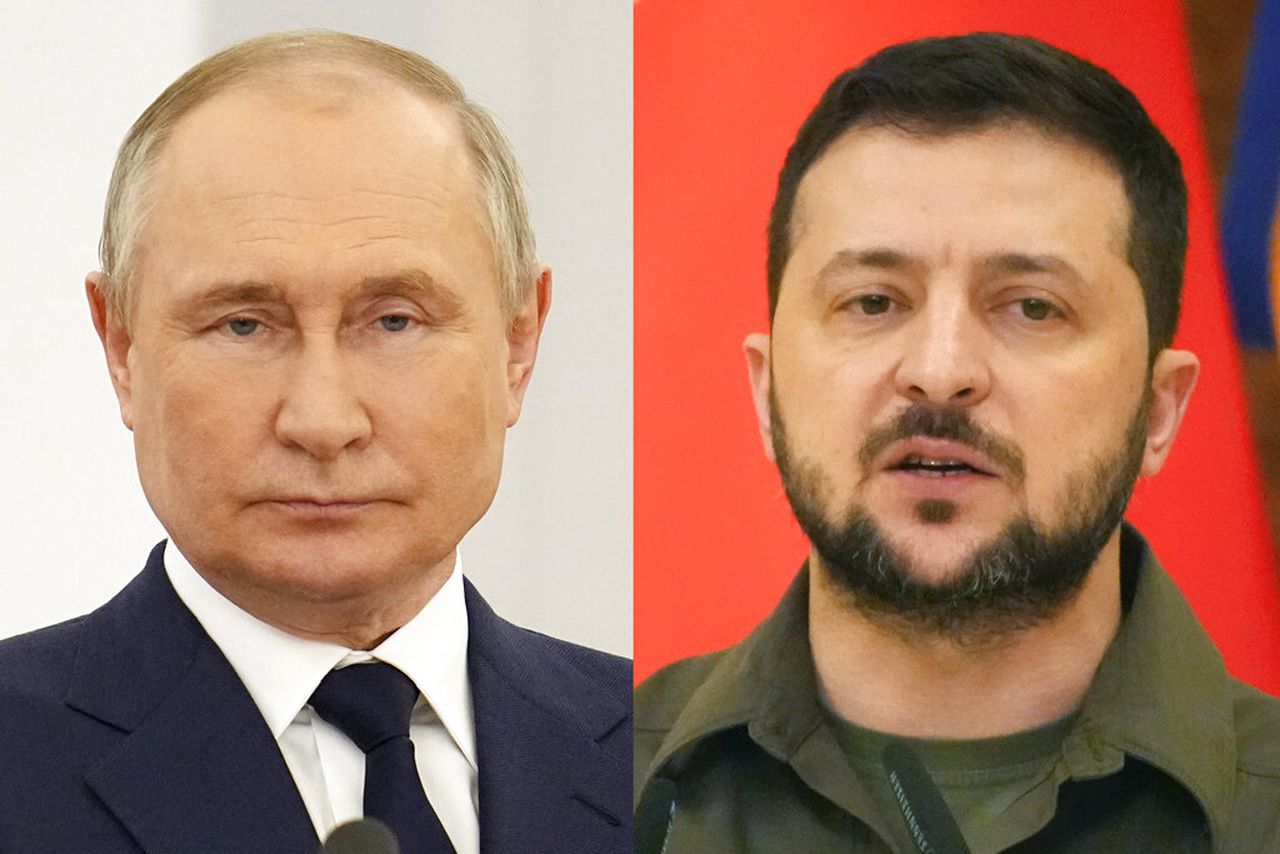We dodged Armageddon 60 years ago. Can we do it again?
I enjoyed Halloween as a child. It was fun to dress up — although, frankly, I was mostly in it for the candy.
There’s one Halloween season in particular that really stands out in my memory. It was in 1962, and I was 9 years old. When you’re 9, you don’t understand much about politics. I knew our parents had voted for President Kennedy. I knew Daddy had served in World War II. I had heard of something called “the Space Race.” And I knew that toward the end of October of that year, the adults around us children — both at home and at school — were very much on edge.
When, as my family watched his televised address on Oct. 22 in which the president told the American people that there were Soviet missile sites in Cuba, I saw my parents’ faces and deduced that something really bad might happen.
In fact, as newspapers reported the crisis over the next few days, I began to wonder if I would live to turn 10. That’s a creepy thought for a little child, but the maps in the newspaper showing how easily Soviet weapons could go from Cuba to Louisiana were enough to scare anybody.
Would the Soviet Union target the Air Force base in the nearby city — Alexandria — where I was born? Apparently, they could have if they’d wanted to.
Keep in mind that in those days, the threat of a nuclear Armageddon was part of daily life. The Cold War was going strong. While adults built so-called “fallout shelters” in their back yards, kids practiced crouching under their school desks in case of enemy attack.
Daddy’s car radio had little Civil Defense symbols on its face. (If your radio was manufactured between 1953 and 1963, the law required that it also had to have the symbols, so we’d all know where to tune our radios in case of enemy attack.)
Turns out, the Cuban Missile Crisis, as it’s now called, did not lead to war. Soviet leaders had badly misjudged how the U.S. would respond. Our government compromised and provided them with a face-saving way out of the crisis. We gave some, and so did they.
All in all, it was pretty scary for children and adults alike.
Now, in the country that is once again called Russia, President Vladimir Putin rattles his atomic saber by threatening to use nuclear weapons in Ukraine. To be sure, he’s probably contemplating the use of tactical weapons rather than the ones that were the stuff of the Cold War.
Strategic nuclear weapons are the huge weapons that we and Russia point at each other. In theory, we’re holding each other’s population hostage. If they attack the U.S., we’ll kill everybody in their country, and vice versa — the idea being that this mutually assured destruction tempers both sides’ willingness to go to war.
Tactical nuclear weapons are much, much smaller. They’re designed to destroy military formations by killing the people and destroying or contaminating the equipment.
We Americans should know how they work, because the United States developed them. Lots of military folks went to Germany back in the day, to keep an eye on the Soviets, whose army was huge.
What could the U.S. do to counter that mass of men and machines? One answer was to make a nuclear weapon small enough to fit into an artillery shell which could be fired at the Soviets before they could pour through the Fulda Gap in Germany and overwhelm us by their sheer numbers.
Like the missiles in Cuba that never got fired, those munitions never got used, either.
Why not? Because of a deceptively simple-sounding thing called negotiation and compromise. Coupled with the fact that the Soviet Union could not go on spending enormous sums of money on weapons, it worked.
Lines in the sand and ultimatums are dangerous things. Putin, like a lot of other people, thought he would roll through Ukraine and turn it back into a vassal state. He was wrong, and so wiser heads will have to figure out what to do now.
What’s clear is that a diplomatic approach — a very firm diplomatic approach — is required.
This is no reality show. The stakes are high, and not something that the world can talk itself out of. Patience, strength and real determination are required. We, and the other nations allied with us, are going to have to show Putin that his aggression will not be rewarded.
Countries like Saudi Arabia will have to be shown that they can’t use their oil wealth to manipulate our political system.
I’m far removed from that frightened 9-year-old. But I still remember how much calmer the grownups were, and how sweet those Halloween treats tasted, after the Soviets agreed to remove their missiles from Cuba.
Reason and diplomacy prevailed then. We can make that happen again now.
Indeed, we have to.
Frances Coleman is a former editorial page editor of the Mobile Press-Register. Email her at [email protected] and “like” her on Facebook at www.facebook.com/prfrances.
